Not sure about choosing a charger? Try our revamped Charger Finder!
Try our revamped Charger Finder!
- For Installations
- All our chargers come with a 1 year warranty
- Free Shipping
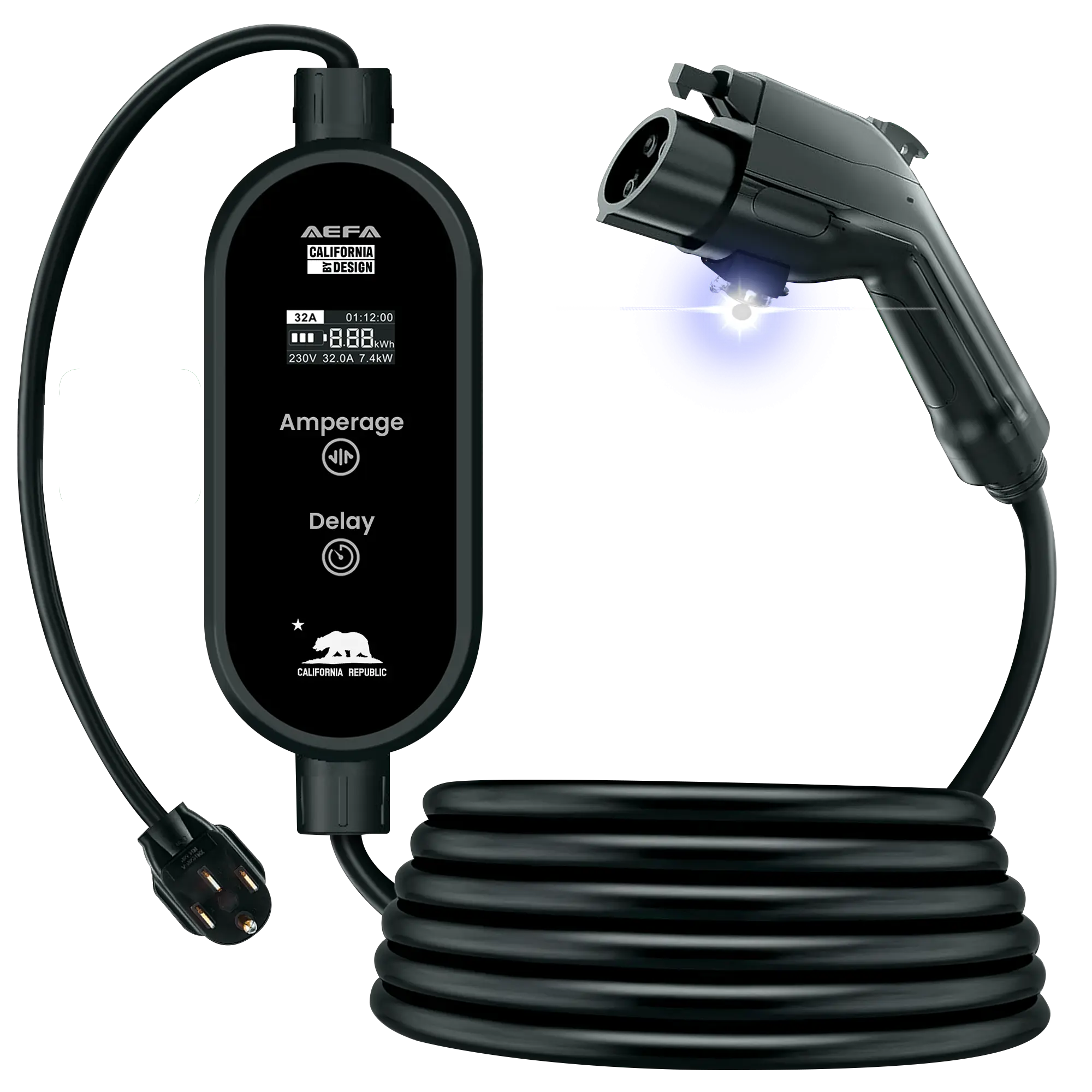

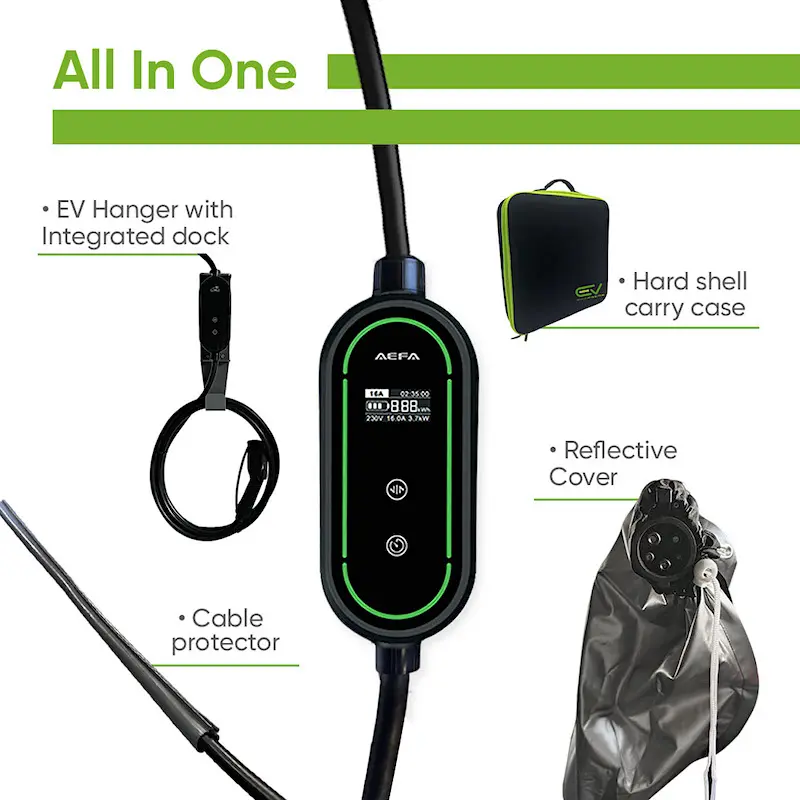
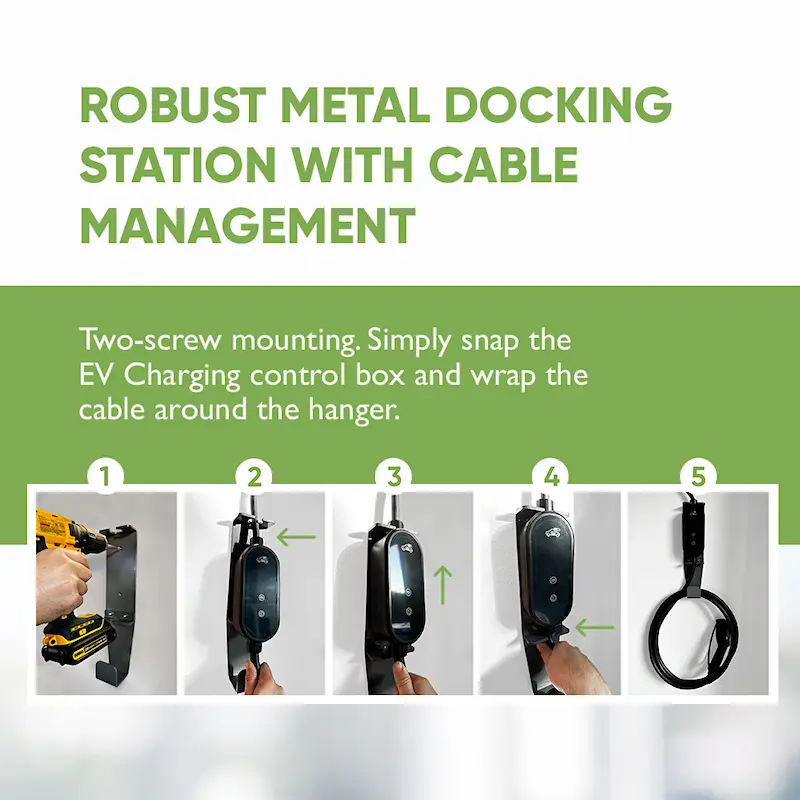
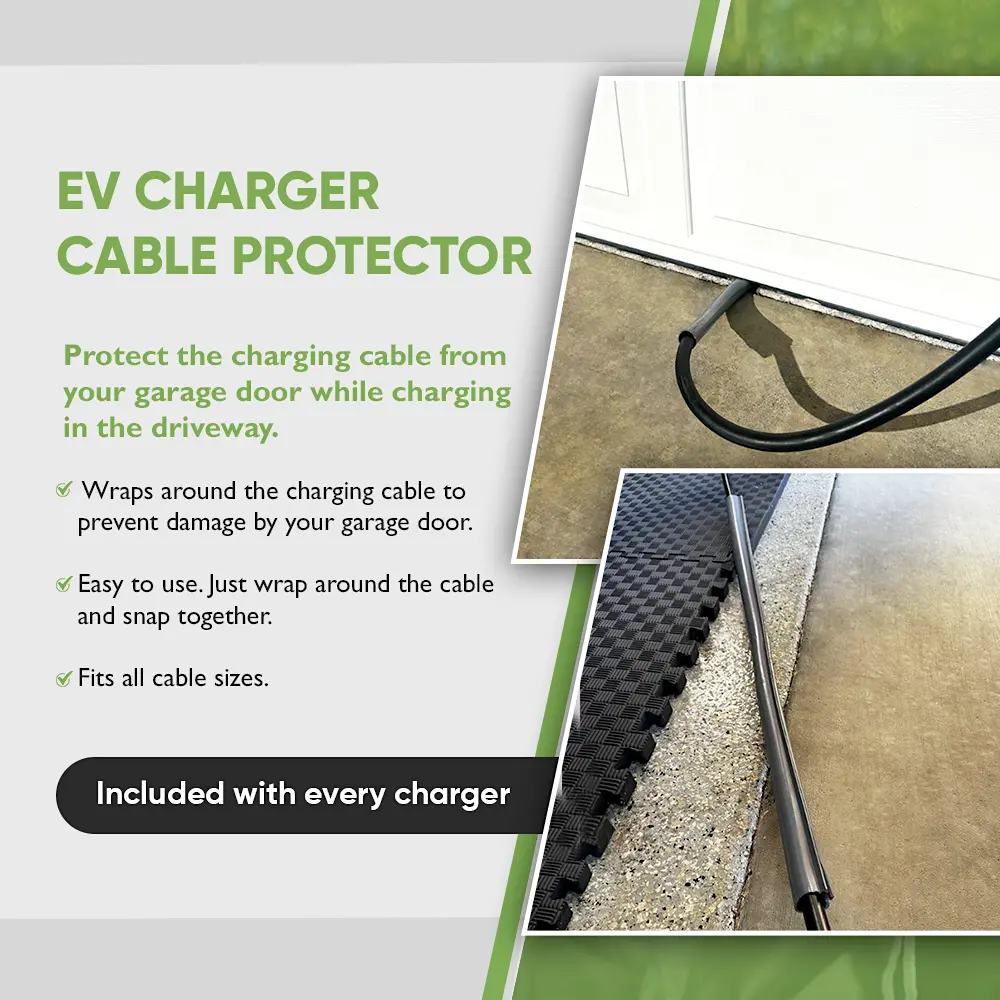
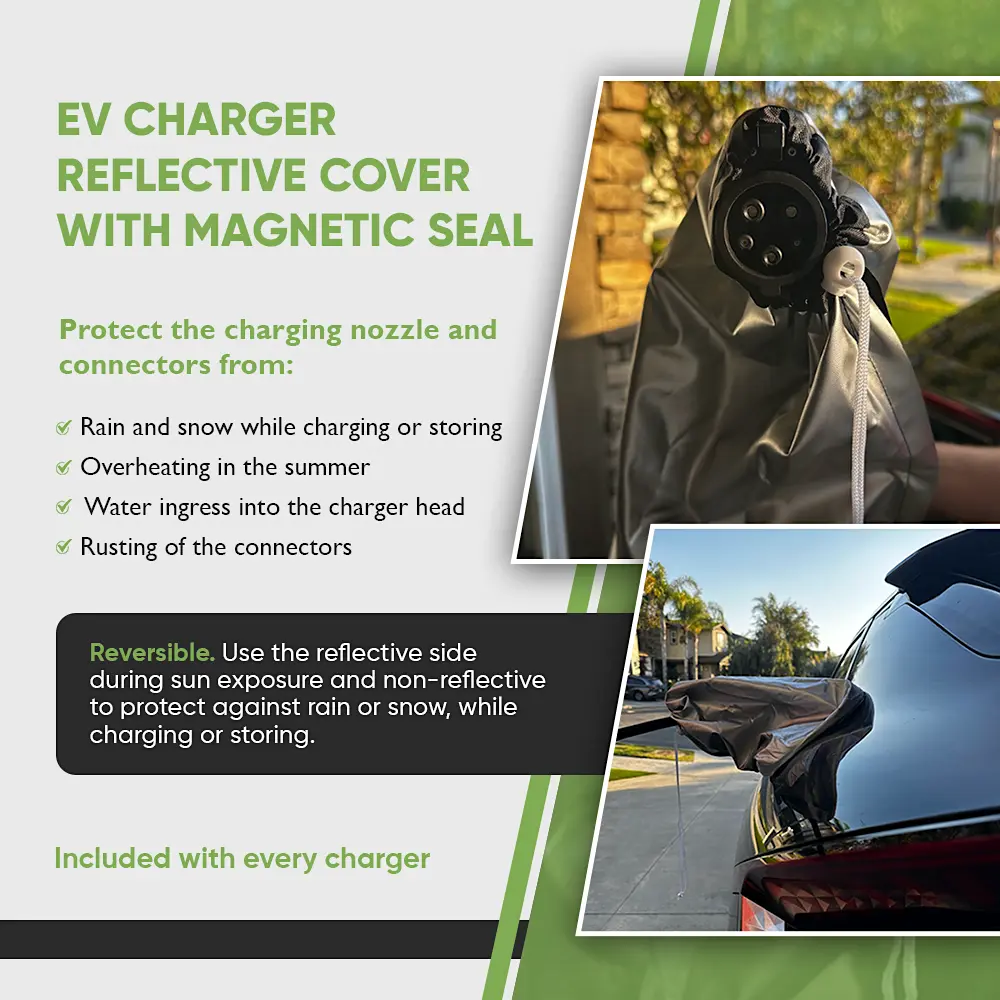
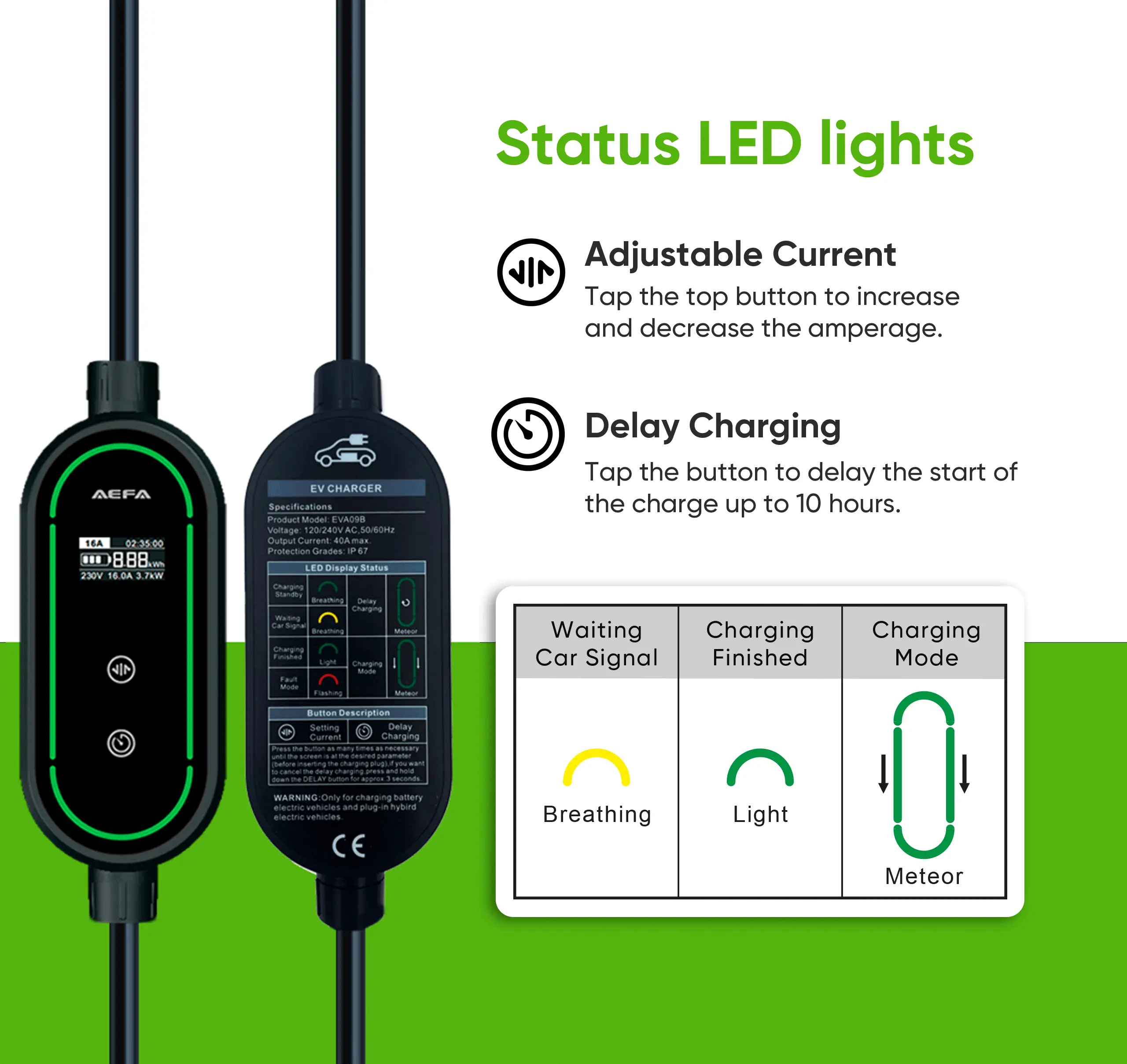
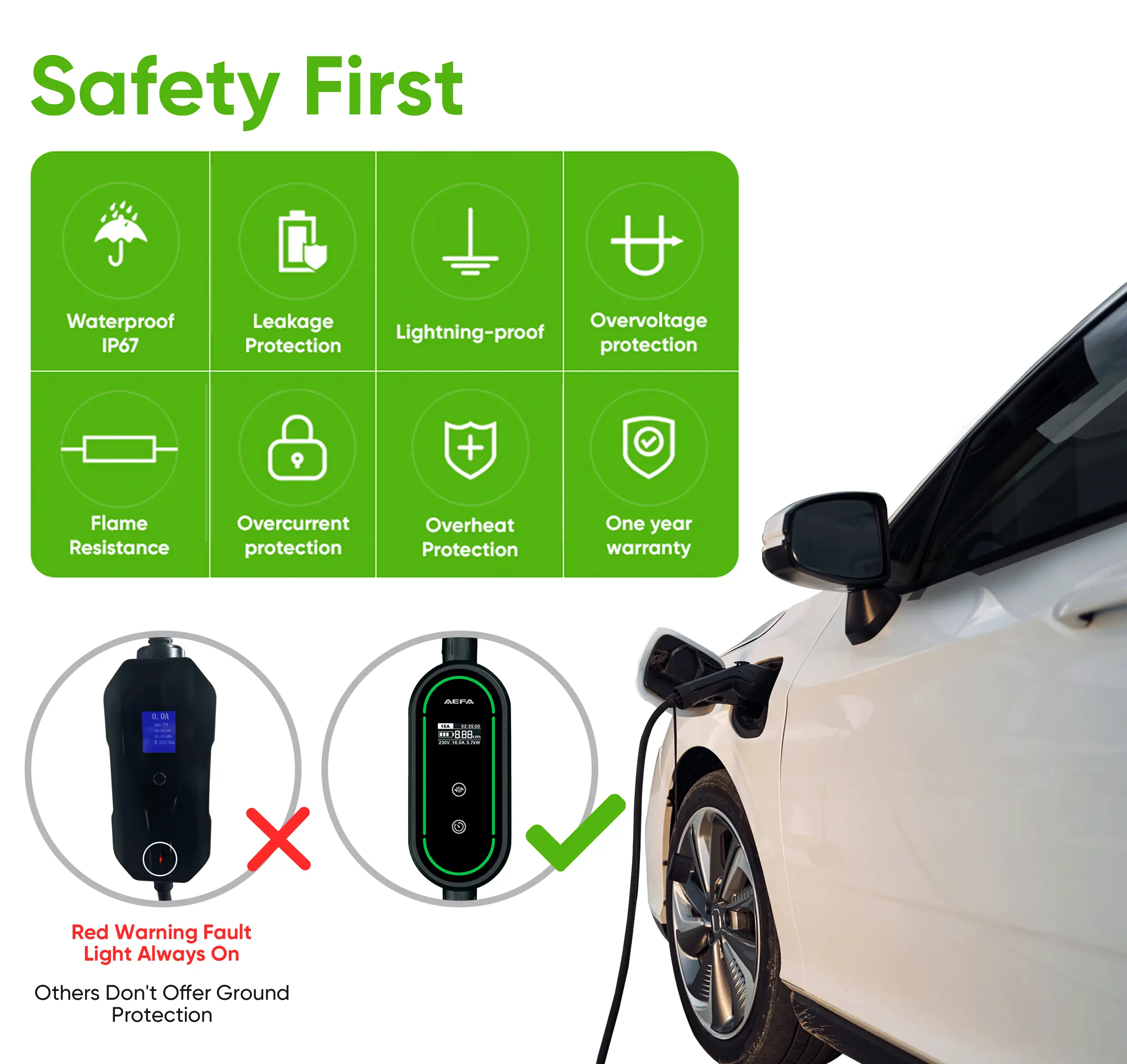
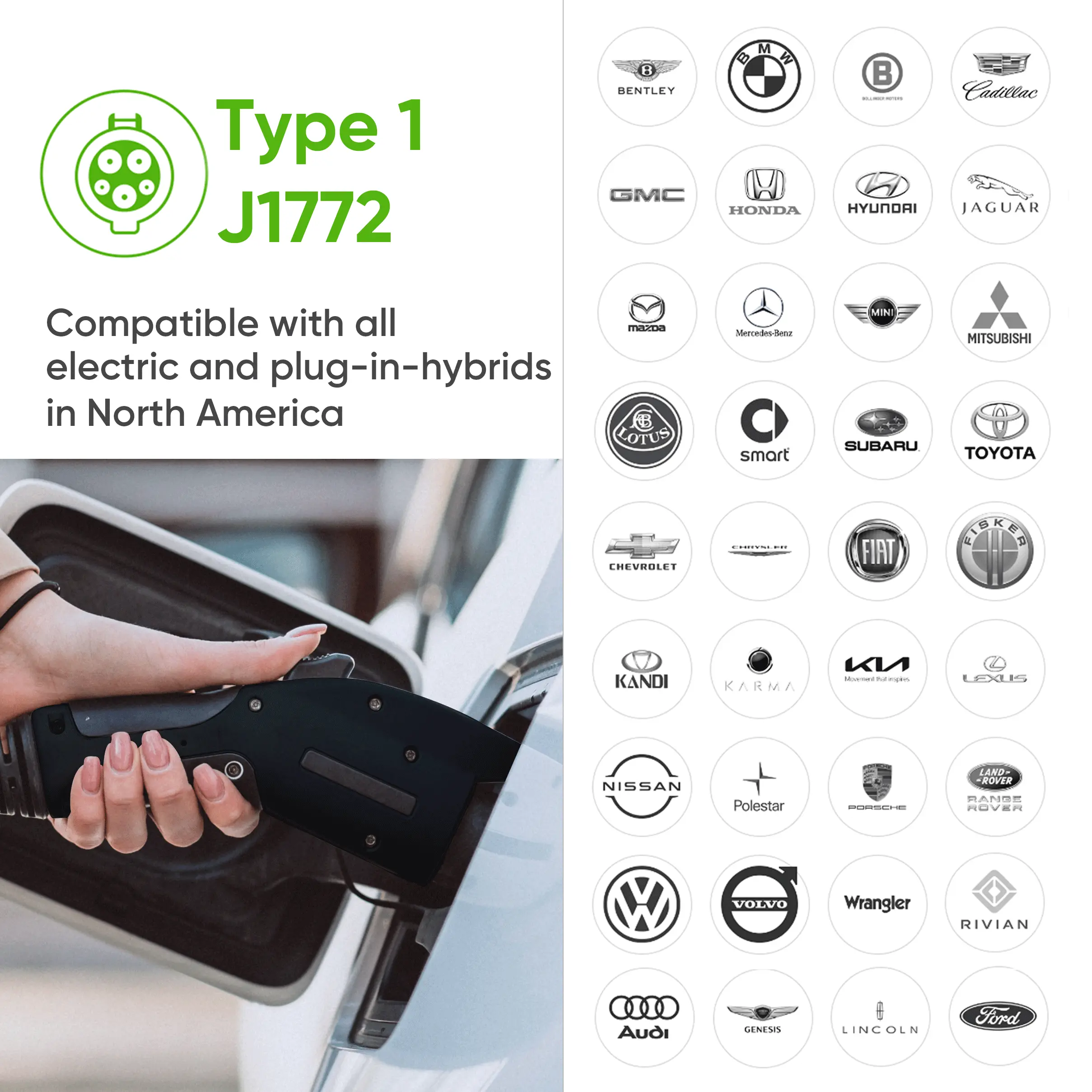
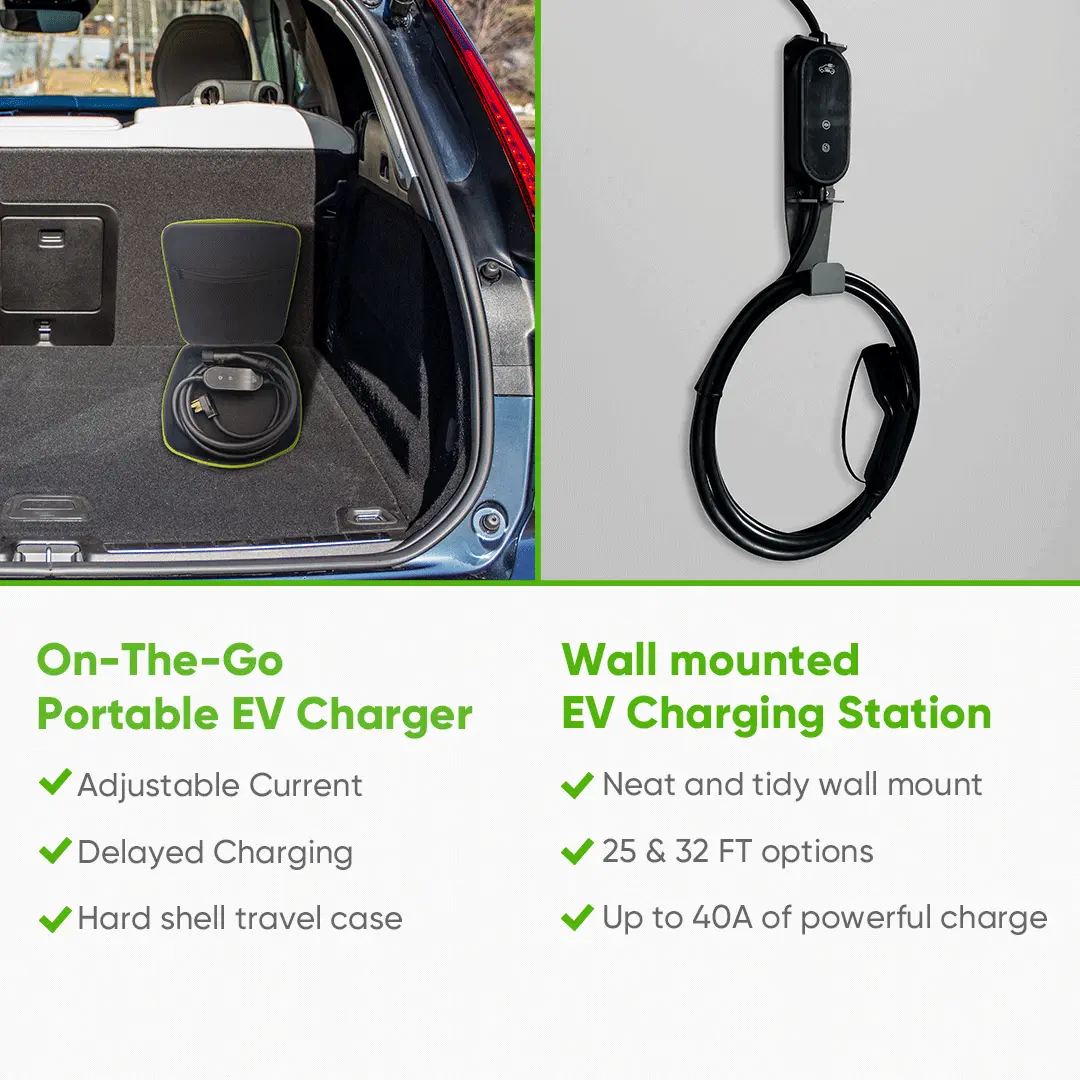
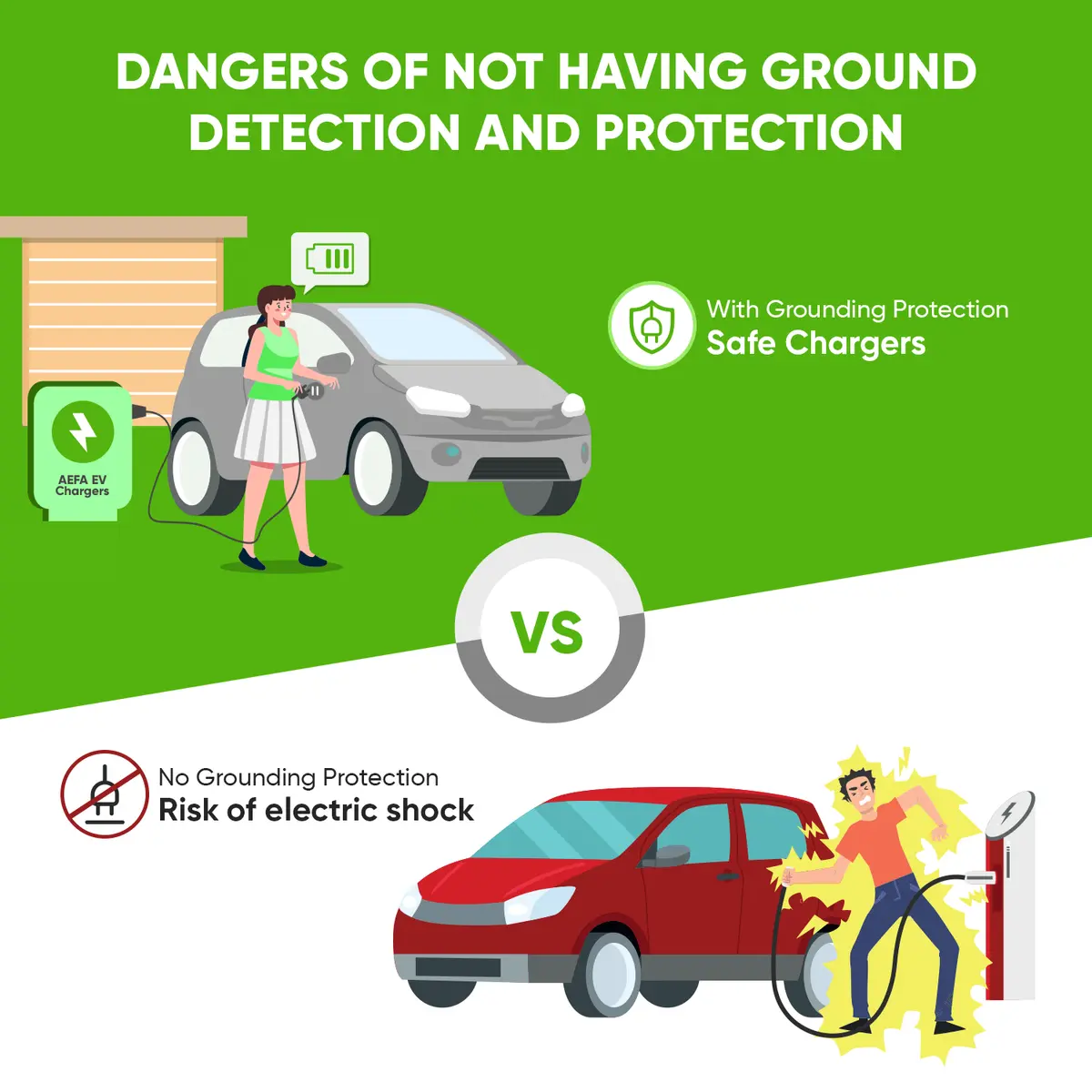
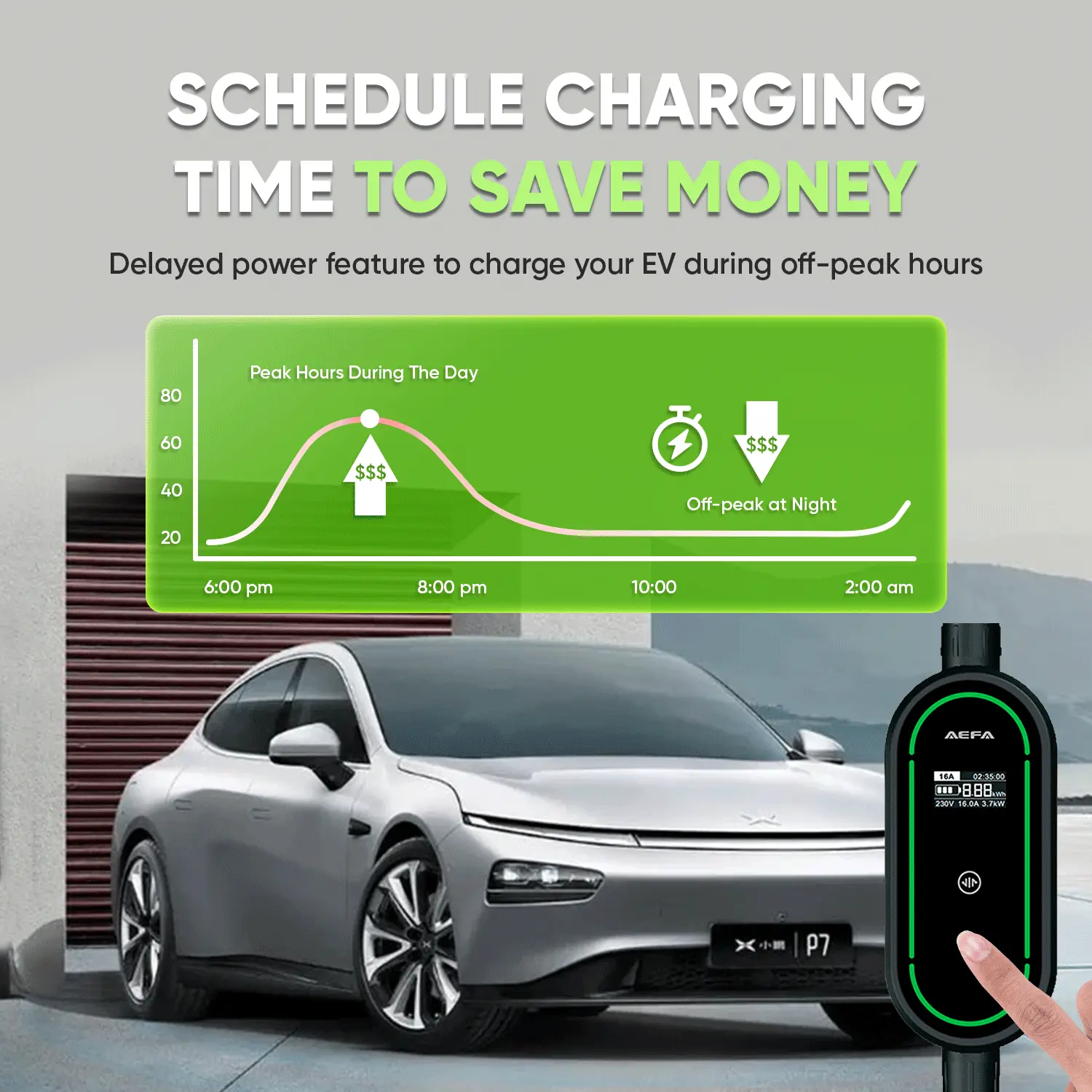
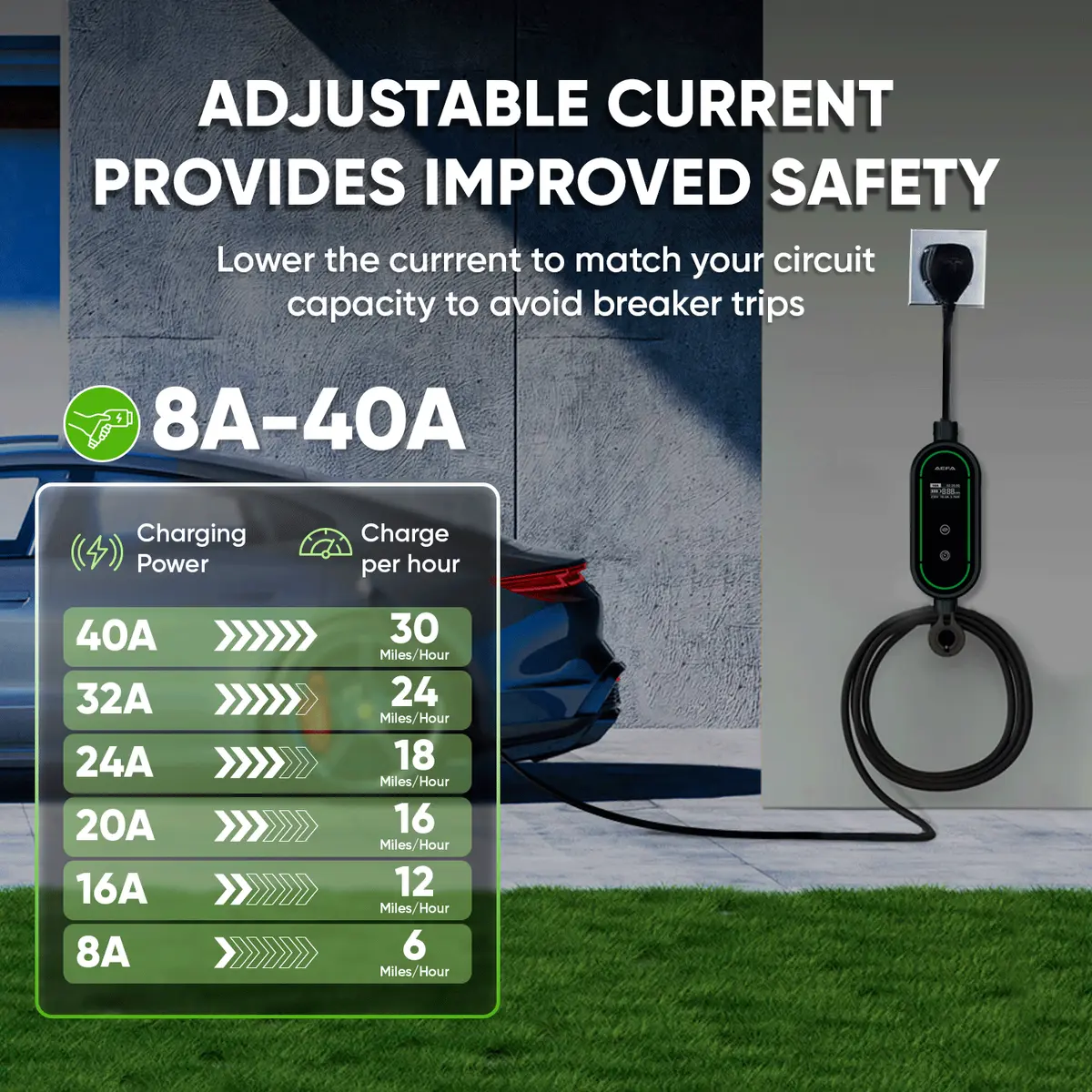
Starting at $120
This product is out of stock.
Order in the next hrs mins for delivery between 00 and 00!
| 3 Pin Plugs | NEMA 5-15 Socket (120V), NEMA 6-30, NEMA 6-20 (240V) |
| 4 pin Plugs
Rating Rated Currents |
NEMA 14-50, NEMA 6-50, NEMA 14-30, NEMA L14-40 (240V)
Indoor/Outdoor rated for installation anywhere 12, 16, 20, 24, 32 and 40 amp |
| Weight | 14 pounds |
| Connector Type | Type 1 (SAE J1772) lockable. Fits all cars including Tesla with Tesla supplied adapter |
| Control Box Dimensions | 2 inches deep x 3.5 inches wide x 8 inches long |
| Cable Length | Convenient 25 feet or 32 feet (total charging length from wall socket 26 feet and 34 feet) |
| Protection | IP67 (international standard EN 60529) |
| Assembly
Temperature |
None
22 degrees Fahrenheit to 140 degrees Fahrenheit |
| Warranty | 12 months |
| Input voltage | 208-240 Volts alternating current (AC), single phase |
| Approvals | CE, CB & TUV Approved |
| Material | Premium TPU with thin and lightweight cable |
| Compatibility | Suitable for all U.S. and Canadian EVs (SAE J1772 inlet) |
| Integrated DC Leakage Protection | Type B residual current detection |
| Surge Protection | Over/under voltage, overload protection, short circuit protection, leakage current protection, over
temperature protection, lightning protection, active ground detection |
| Ground Monitoring | Yes |
| Residual Current Detection | Alternating current 30 milliamps (mA), Direct Current 6 milliamps (mA)
*Requirements of GB 14048.2 – 2008, GB 16916.1-2014 and GB 22794-2008 |
| Features | LED indicator lights to manage charging errors |
In 2022, Kia introduced the Kia Sportage Plug-in Hybrid, expanding its lineup of electric vehicles, which includes models like the EV6, Niro EV, and Soul EV. Since its introduction, it has become one of America’s most popular Plug-In Hybrids, winning the Best Hybrid SUV for the Money award. The Sportage is compatible with a Level 1 or a Level 2 J1772 EV charger for its 66.9-kW electric motor. We have been asked numerous questions surrounding Kia Sportage Plug-In Hybrid EV charging so we have produced this guide to give you all the answers in one place.
| Battery Size |
|---|
| 13.8-kWh |
| DC commercial charging |
|---|
| No |
| Cost per Charge |
|---|
| ~$1.50 |
| Level 2 Charging |
|---|
| Yes |
| Electric Range |
|---|
| 34 miles |
The table below shows estimated charges time from empty to full for a Kia Sportage Plug-In Hybrid. In the example below, we show the times to charge from empty. These charging times are particularly relevant for EV drivers, emphasizing the convenience and practicality of the charging options. We show different common residential plug types for this model charging at both level 2 and level 1.
| Make/Model |
|---|
| Kia Sportage PHEV |
| Kia Sportage PHEV |
| Kia Sportage PHEV |
| Plug Type |
|---|
| 5-15 (regular 3 pin) |
| 14-30 (4 pin electric dryer type) |
| 14-50 (4 pin) |
| Level |
|---|
| Level 1 (120 volt) |
| Level 2 (240 volt) |
| Level 2 (240 volt) |
| Battery Size (kWh) |
|---|
| 13.8 |
| 13.8 |
| 13.8 |
| Charge Rate |
|---|
| 1.5 KW/hour @ 12 amps |
| 5.5 KW/hour @ 24 amps |
| 9.6 KW/hour @ 40 amps |
| AEFA Charge Time |
|---|
| ~ 9.2 hours |
| ~2.5 hours |
| ~2 hours |
For battery preservation, the ideal charging range of the battery is from 20% to 80%, as charging tends to slow outside this range to protect the battery and avoid exhaustive performance issues.
As shown per the table above, the charge time of your Kia Sportage Plug-In Hybrid with a manufacturers Level 1 (120-Volt) charger is 9.2 hours. However, upgrading to a Level 2 home (240-Volt) charger significantly reduces the charge time to 2 hours. To optimize your EV charging experience by maximizing charging speed, avoiding long queues at commercial charging stations, and ensuring a full overnight charge when electricity rates are lower (in some states, super off-peak charging can be as much as 40% cheaper than peak times), we recommend our NEMA 14-50 40 amp 9.6 kWh Kia Sportage EV Charger.
Owners of a Kia Sportage Plug-In Hybrid can charge the EV with a Type 1 SAE J1772 charger connector from the comfort of their own home, at work or at a public charging point. The maximum alternating current (AC) charge rate is 7.2 kW/hour. The EV internal software will not allow you overcharge the cars battery, it will automatically determine the available charge space and take the charge it is rated for.
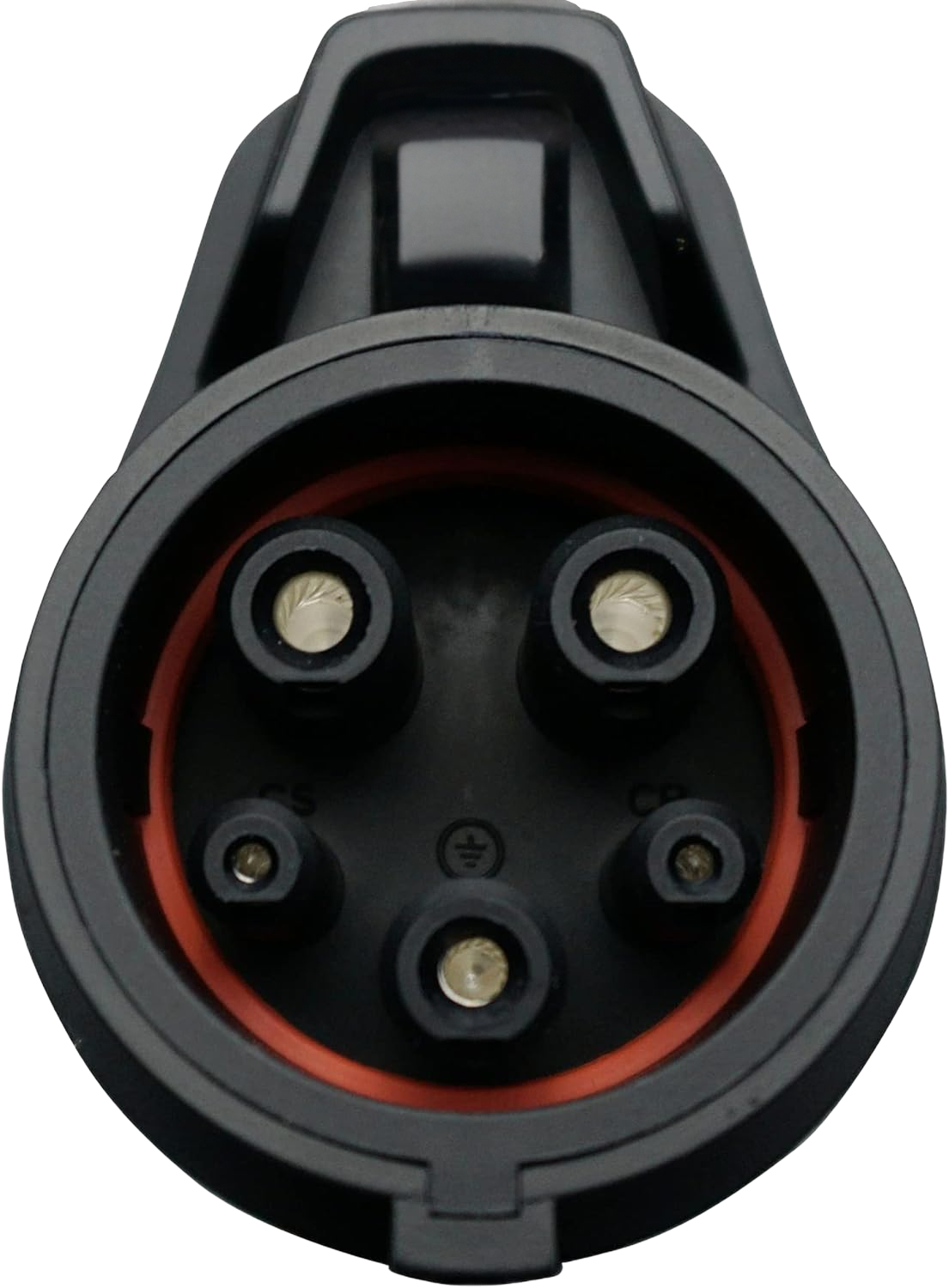
We offer charger types to suit all EV owners preferences and enable them to effectively charge around their lifestyles. Our most popular EV Charger NEMA 14-50 40amp offers the fastest Kia Sportage Plug-In Hybrid charging time. However, another popular charger is the 14-30 EV plug since it’s a 240-Volt Level 2 charger which charges via plug types commonly used in garages for heavy duty appliances.
The majority of EV owners opt to charge at home due to the convenience and lower costs of home EV charging. However, owners may charge Kia Sportage Plug-In Hybrid conveniently at home, at work where there are level 2 EV charging stations or at places such as strip malls, car parks and City owned installations. 14-50 EV chargers can also be used in camp grounds, RV parks and other stay over locations where the 14-50 receptacle is more common.


The cost of charging your EV will depend on various factors such as the location (residential or commercial), State where you’re charging in, the time of day or charting power. Below are the costs depending on location. In California, peak electricity is much more than the U.S. current averages for electricity of 20 ¢/kWh used in the calculation below.
| Place | |
|---|---|
| Home (empty to full)* | Commercial chargers** |
| Avg. cost | |
|---|---|
| $2.07 | $5.38 |
| Cost/mile | |
|---|---|
| 0.15¢ | 0.39¢ |
* Assumes avg. U.S. tariff of 20 ¢/kWh. Home charging costs will vary state by state depending on electricity costs
** Assumes tariff of 50 ¢/kWh applicable to most commercial Level 2 network EV chargers
If you don’t find the answer you need, feel free to contact us.
Charging your Kia Sportage Plug-In Hybrid can be performed at Level 2 commercial charging stations, PHEV’s cannot be charged by DC Fast chargers.
The fastest available charging option is a 32 amp or 40 amp, 240-volt charger which we offer as 14-50 and 6-50 EV chargers.
The Kia Sportage Plug-In Hybrid uses a J1772 Type 1 connector. There are currently no options for Kia EV to use NACs charger connector.
Although compatible with Level 1 chargers, this will depend on the users lifestyle as the duration to fully charge (9.2 hours) will limit your ability to fully charge the vehicle and subsequently restricting electric driving.
The most popular charging option is the Level 2 14-50 240-volt EV charger as this will charge your EV to full capacity within 2 hours.
A level 2 240 volt charger will allow owners to take advantage of favourable charging times, cost and added convenience which are limited by level 1 charging options. Ability for a complete charge at overnight lower cost rates will allow EV owners to fully benefit from all factors of electric-driving.
The Kia Sportage Plug-In Hybrid power acceptance rate is limited to 7.2 kilowatts per hour currently. Future versions may have higher power acceptance settings to enable faster charging.
Thanks for your interest! We’ll be notifying you once the product gets back in stock.